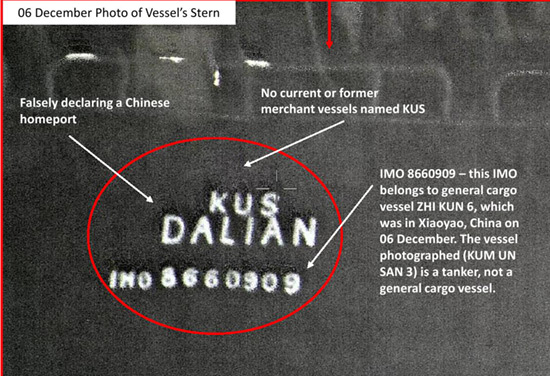![By Dreamliner 2012 (Own work) [CC BY-SA 4.0 (https://creativecommons.org/licenses/by-sa/4.0)], via Wikimedia Commons https://commons.wikimedia.org/wiki/File%3AA320SYZ.JPG [cropped and processed] By Dreamliner 2012 (Own work) [CC BY-SA 4.0 (https://creativecommons.org/licenses/by-sa/4.0)], via Wikimedia Commons https://commons.wikimedia.org/wiki/File%3AA320SYZ.JPG [cropped and processed]](https://www.exportlawblog.com/images/meraj.JPG)
Although that might seem a bit of an overreaction by the German fuel companies, it probably was not. For starters, based on reports (here and here) from plane spotters, Zarif has been ferried around on an Airbus operated by Meraj Airlines, an Iranian charter company that the U.S. thinks has carried around not just tourists and Iranian officials but also arms and reinforcements for Syria. As a result, Meraj is on the SDN list and sanctioned under the Global Terrorism Sanctions Regulations. This meant that Meraj remained on the SDN List even after the implementation of the JCPOA. The problem then, for the German fuel companies, is that section 2 of Executive Order 13645, which allows OFAC to designate anyone who supplies “goods or services to or in support of any Iranian person included on the SDN list,” would apply to any refueling of a Meraj aircraft.
But wait, what about the travel exemption? You know, OFAC’s least favorite exemption, right up there next to the information exemption. Wouldn’t refueling the plane be, to quote 50 U.S.C. 1702(b)(4), a transaction “ordinarily incident to travel to or from any country”? Of course it is, but OFAC, in FAQ J.7, says this:
U.S. persons are allowed to engage in transactions that are ordinarily incident to travel to or from Iran, including flying on Iranian airlines, with the exception of airlines, such as Mahan Air, that are designated under the Global Terrorism Sanctions Regulations, 31
C.F.R. part 594 (GTSR).
Sigh. We’ve been here before when OFAC recently said you could go to jail for giving a Bible to a member of the Islamic Revolutionary Guard Corps. The argument that OFAC tried to make in that case was that since the sanctions are authorized under a statute other than the International Emergency Economic Powers Act, it was free to ignore the travel and information exemptions. The problem with that argument in the IRGC case was that the other statute cited by OFAC directed it to impose sanctions under IEEPA.
In this case, the Executive Order in question relies on Comprehensive Iran Sanctions, Accountability, and Divestment Act of 2010 (“CISADA”) and the Iran Freedom and Counter-Proliferation Act of 2012 (“IFCA”). But neither of those acts authorizes  permitting designation of anyone providing material support to any Iranian on the SDN List. Section 112 of CISADA allows imposition of travel restrictions on affiliates of the IRGC, but that does not authorize such restrictions on every other Iranian on the SDN list that is unaffiliated with the Islamic Revolutionary Guard Corps (“IRGC”). For Iranian SDNs that are not IRGC affiliates, section 2 of Executive Order 13645, is authorized by IEEPA alone; and the travel exemption, therefore, remains in force for those cases.
The designation of Meraj did not rely on any affiliation with the IRGC. So, the travel exemption should apply to the foreign refueling of Meraj aircraft. That being said, one can certainly understand why the German companies would simply rather refuse to service the plane rather than relying on an argument that the travel exemption applies. The question is now whether OFAC will go after the German military and designate it under Executive Order 13645.  I have to admit that these days nothing, including OFAC saber rattling over the German military letting Zarif go home, would surprise me.
Photo Credit: By Dreamliner 2012 (Own work) [CC BY-SA 4.0 (https://creativecommons.org/licenses/by-sa/4.0)], via Wikimedia Commons https://commons.wikimedia.org/wiki/File%3AA320SYZ.JPG [cropped and processed]. Copyright 2014 Dreamliner 2012

 Posted by
Posted by  Category:
Category: 


![Image via https://home.treasury.gov/news/press-releases/sm0297 [Public Domain] Image via https://home.treasury.gov/news/press-releases/sm0297 [Public Domain]](https://www.exportlawblog.com/images/kum_un_san.jpg)
![Visita Ilyumzhinov by Federació d'Escacs Valls d'Andorra [CC-BY-SA-2.0 (http://creativecommons.org/licenses/by-sa/2.0)], via https://commons.wikimedia.org/wiki/File:Kirsan_Ilyumzhinov_2014.jpg[cropped] Visita Ilyumzhinov by Federació d'Escacs Valls d'Andorra [CC-BY-SA-2.0 (http://creativecommons.org/licenses/by-sa/2.0)], via https://commons.wikimedia.org/wiki/File:Kirsan_Ilyumzhinov_2014.jpg[cropped]](https://www.exportlawblog.com/images/ilyumzhinov.jpg)
![Denis Chaibi via http://www.mei.edu/profile/denis-chaibi[Fair Use] Denis Chaibi via http://www.mei.edu/profile/denis-chaibi[Fair Use]](https://www.exportlawblog.com/images/chaibi.jpg)


